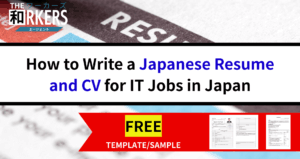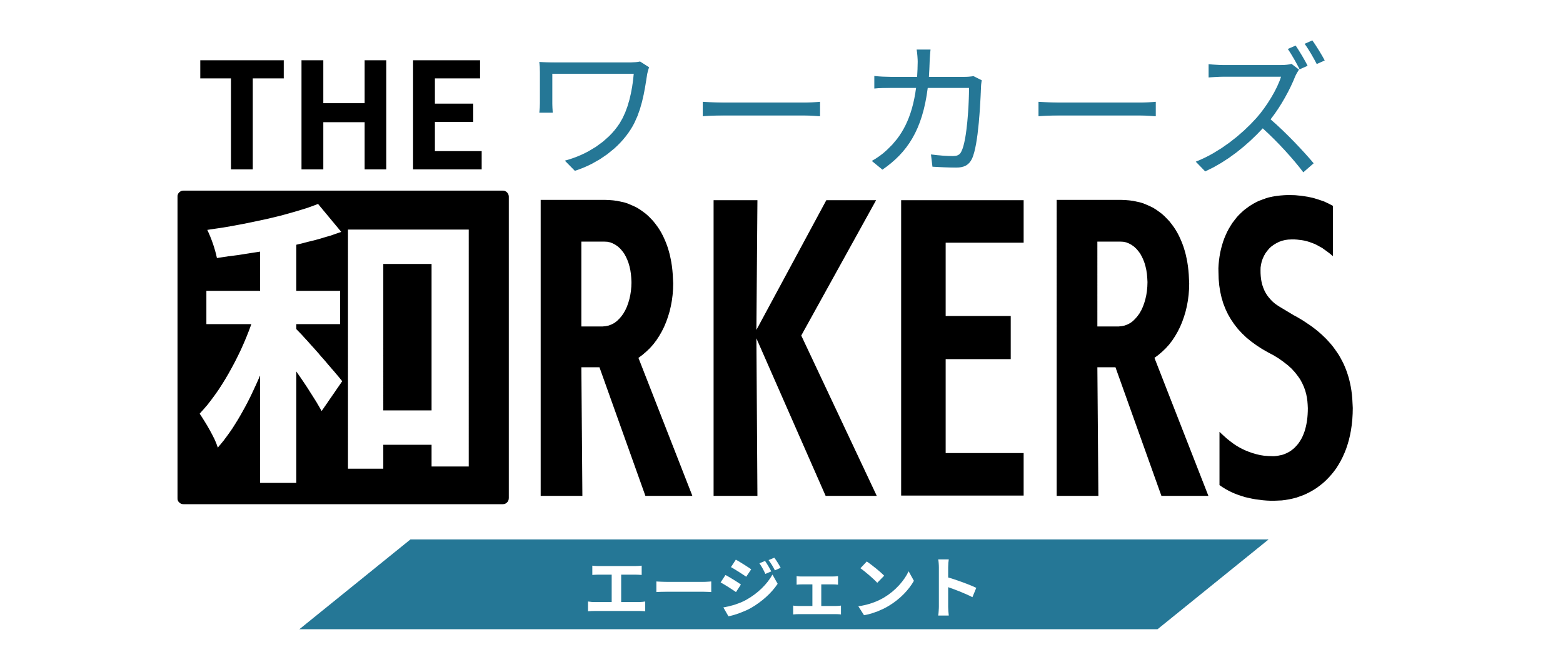How to Work at a Japanese Tech or Startup Company as a Foreigner

Ready to grow your career at a Japanese tech company or startup?
As a foreign IT professional in Japan, you have valuable skills to offer—but navigating the job market can bring unique challenges: language barriers, cultural expectations, and finding companies that truly value international talent.
This guide is designed to help you land your next role with confidence, covering everything from understanding Japan’s tech industry landscape to crafting strong application documents and acing interviews.
Understanding the Overall Landscape of Japan’s Tech Industry
If you’re aiming to work for an IT/tech company or a startup in Japan, it’s important to first understand the industry’s structure and cultural differences. To find a workplace that aligns with your interests and skill set, keep the following points in mind.
Large Tech Companies vs. Startups: Differences in Culture and Hiring
There are major differences in work style, hiring criteria, and expected roles between large companies and startups.
Large Tech Companies
These offer stability, brand recognition, and well-developed training programs. However, they often have a hierarchical structure, which can slow decision-making, and job responsibilities may be more narrowly defined.
In many cases, they place strong emphasis on Japanese language ability, often requiring JLPT N1 or higher. That said, there’s been a growing trend in recent years toward actively hiring foreign engineers.
Startups
Smaller in scale, startups typically offer broader roles and faster decision-making. They’re ideal for those who want to work with more autonomy and at a faster pace.
Many startups actively hire foreign talent, and more workplaces use English as the primary language of communication. However, if the role involves handling Japanese customers or negotiations, you may still need N2–N1 level Japanese.
Being clear about which culture suits you better will help you choose companies more effectively.
English-Friendly Companies vs. Japanese-Only Workplaces
In Japan, you’ll find both “English-friendly” companies that actively welcome foreign employees and workplaces where almost all business is conducted in Japanese.
English-Friendly Companies
These often have many international employees and use English for internal communication. You’ll find this especially in globally oriented startups and foreign multinationals.
However, tasks aimed at the Japanese market or customer interactions may still require Japanese-language communication.
Japanese-Only Workplaces
At typical Japanese companies, documents, meetings, and emails are usually all in Japanese. It’s not uncommon for them to require N1-level Japanese proficiency.
When reviewing job listings, be sure to check the language requirements carefully and choose companies that match your Japanese level.
High-Demand IT Roles
Japan faces a chronic shortage of IT talent, and demand for foreign professionals is especially strong in the following roles:
- Software Engineer (Frontend, Backend, Full-Stack)
- Infrastructure / Cloud Engineer
- Data Scientist / Data Analyst
- Product Manager
- QA Engineer
- AI / Machine Learning Engineer
- SAP Consultant
These roles are highly specialized, which can sometimes mean more flexibility in Japanese-language requirements.
Take stock of your skills and experience, and think about which positions best match your strengths.

Check Your Work Eligibility and Visa Requirements
When looking to work at a tech company or startup in Japan, it’s crucial to understand your visa type and its requirements. The kind of visa you have affects the roles you can take, the conditions of your employment, and the procedures you’ll need to follow when changing jobs. Keep the following points in mind:
Engineer/Specialist in Humanities/International Services Visa
Many foreign IT professionals in Japan hold the “Engineer/Specialist in Humanities/International Services” visa.
Eligible Roles
This visa covers positions that make use of specialized knowledge or skills, such as software development, infrastructure, project management, IT consulting, and translation/interpretation.
Main Requirements
Typically, you need a university degree (bachelor’s) or at least 10 years of relevant work experience. Your academic major should generally be related to the type of work you’re doing.
Key Point
If you have engineering experience, this visa is relatively straightforward to obtain. However, it’s important to ensure that the application and job description align with Japanese immigration requirements.
Visa Procedures When Changing Jobs
If you already have a work visa in Japan, changing jobs doesn’t mean you need to get a completely new visa. However, you do need to complete specific notifications and procedures.
No Need to Change Status, But Job Duties Must Align
For example, if you hold an “Engineer/Specialist in Humanities/International Services” visa, your new role must also fall within the same category (e.g., IT engineer, consultant, etc.).
Notification After Changing Jobs
You’re required to notify immigration within 14 days of changing employers by submitting a “Notification of Affiliated Organization.” Failing to do this can lead to issues when you renew your visa.
Review at Time of Visa Renewal
When you renew your visa, immigration will review your new employment contract and details about the company. Make sure your new employer is reputable and that your job duties clearly match the visa requirements.

Starting Out as a Temporary or Contract Employee
If you don’t yet have strong Japanese language skills or work experience in Japan, applying directly to full-time roles can often be challenging at the document screening or interview stage.
On the other hand, positions via staffing agencies or SES (System Engineering Service) companies tend to have lower hiring barriers and can be a good way to gain practical experience.
- Gain experience across different projects and client sites
- Learn how to communicate in Japanese within a team
- Understand Japan-specific development processes and work culture
These experiences can become major strengths when you move on to the next stage of your career.
Cases Where People Start in Other Industries Despite an IT Background
Even if you have engineering experience in your home country, you might initially have to take non-IT jobs in Japan due to limited Japanese ability.
For example, some people support themselves with customer service or other non-IT work while studying Japanese, then transition into an IT company once their language skills are strong enough.
Many foreign professionals have successfully built their careers as IT engineers in Japan by putting in this kind of effort.


Finding Companies and Jobs That Suit You
To build a career in Japan’s IT and tech industry, it’s important to know which companies are open to hiring foreign talent and to find job opportunities that truly fit you. Below are some key points to help you choose companies and gather information.
Identifying Companies That Welcome Foreign Talent
There’s a wide range in how prepared Japanese companies are to hire and support foreign employees. Look for these signs:
- Does the company already have foreign employees?
- Is English the working language, or is the company open to using English in communication?
- Do the careers page or job listings mention “diversity,” “global talent welcome,” or similar wording?
- Do they have a track record of providing visa support?
Check the Actual Job Details Too
Even if a company describes itself as “English-friendly,” meetings or client interactions may still be mostly in Japanese. Make sure to confirm the actual duties and the expected level of Japanese before applying.
Using Job Boards and Recruitment Agencies
For job hunting in Japan, using multiple channels can help you find opportunities that better match your goals.
Job Boards
There are large general-purpose job sites, IT-focused sites, and sites specializing in English-language jobs. By refining your search criteria, you can narrow down to listings open to foreign applicants.
Recruitment Agencies
Agencies often have access to many non-public (“confidential”) job openings. Agencies that specialize in foreign talent are particularly helpful, as they can recommend roles while taking visa requirements and your Japanese level into account—making it easier to find the right fit.
Leveraging Networking and Referrals
In Japan, networking and referrals are extremely important in the job search process.
Introductions from Friends or Former Colleagues
Referral hiring is common in Japan. Having an employee’s recommendation can improve your chances of passing document screening or securing an interview.
Participating in Communities and Events
- Engineer-focused events like Meetup or connpass
- Online and offline technical communities
- Networking via LinkedIn and other social media
Expanding your network in these ways can lead to direct connections with hiring managers or engineers at companies, increasing your chances of being approached about open roles.
4. Prepare Your Application Documents Carefully
To succeed in a job search in Japan, it’s essential to properly prepare your Japanese-style resume (Rirekisho) and CV (Shokumukeirekisho). In addition, cover letters and portfolios are also important parts of the screening process. Here are some tips on how to prepare them well.
Writing a Japanese-Style Resume and CV
Rirekisho (Japanese Resume)
A formal document in Japan that concisely summarizes your name, address, contact information, education, work history, qualifications, and motivation for applying. Using a standardized format is typical, though creating it on a computer is widely accepted nowadays.
Shokumukeirekisho (Detailed CV)
A free-format document describing your work experience, achievements, and project history in detail. This is closer in style to Western CVs and is your chance to clearly highlight your strengths and accomplishments.
Key Points
- Use polite, correct Japanese as much as possible (absolutely avoid typos or errors)
- Ensure dates, company names, and other details are accurate
- Describe your responsibilities and achievements in detail, organized by project]

Portfolio, GitHub, and Technical Tests
Portfolio
For designers or front-end engineers, having a portfolio site showcasing your work is a major advantage in the hiring process.
GitHub
Sharing your code publicly allows you to demonstrate your development style, ability to respond to code reviews, and documentation skills. Many companies use this as a reference during hiring.
Technical Tests
Especially at startups and foreign companies, coding challenges or online technical tests are common parts of the selection process.
- It’s not only about writing correct code—being able to explain your design choices and ensuring readability are equally important.
- Practicing in advance on sites like LeetCode or AtCoder is highly recommended.
5. Succeed in the Interview Process
Once you pass the document screening stage, it’s time for interviews.
Japanese interviews often have their own structure, common question types, and cultural expectations, so preparing in advance is extremely important. Keep these points in mind so you can approach interviews with confidence.
Typical Interview Stages in Japan
Hiring processes at Japanese IT companies and startups often follow stages like these:
First Interview (HR / Team Lead)
- Assessing overall fit and communication skills
- Checking reasons for changing jobs, motivation for applying, and Japanese-language ability
Technical Interview
- Deep dive into your project experience
- Explaining coding tests or design assignments
- Discussing your GitHub projects or portfolio
Final Interview (Manager / Executive Level)
- Evaluating team fit and long-term career motivation
- Assessing understanding of the company’s culture
- May also involve negotiating salary or offer terms
Depending on the company, startups may only have one interview round, while large companies might have three or four.
Cultural and Communication Tips
In Japanese interviews, it’s not only your technical skills that matter, but also your ability to work well in a team and show respect for others.
Politeness and Etiquette
- Basic phrases like “yoroshiku onegaishimasu” (thank you in advance) and “arigatou gozaimasu” (thank you) are essential
- Listen carefully without interrupting the interviewer
Balancing Humility and Confidence
- Clearly communicate your strengths, but maintain a humble attitude
- Show a willingness to learn and grow
Communication Style
- Be honest if you don’t know something
- Check for understanding to avoid miscommunication (especially if Japanese is your second language)

Thinking About an IT Career in Japan? Choose THE 和RKERS
Why Foreign IT Professionals Trust THE 和RKERS
At THE 和RKERS, we specialize in helping international IT professionals build rewarding careers in Japan.
Whether you’re already working here or planning your first move, we know the unique challenges you face—language barriers, visa requirements, cultural differences—and we’re here to support you at every stage.
Our team understands both the Japanese tech landscape and the needs of global talent, making us the partner you can rely on to navigate your career in Japan with confidence.
\Software Engineers, IT Consultants, Data Scientists…/

Non-Japanese and aiming for a top-tier job in Japan?
Get in touch with THE 和RKERS Agent today.



Software Engineers,
IT Consultants,
Data Scientists…

Non-Japanese and aiming for a top-tier job in Japan?
Get in touch with THE 和RKERS Agent today.
